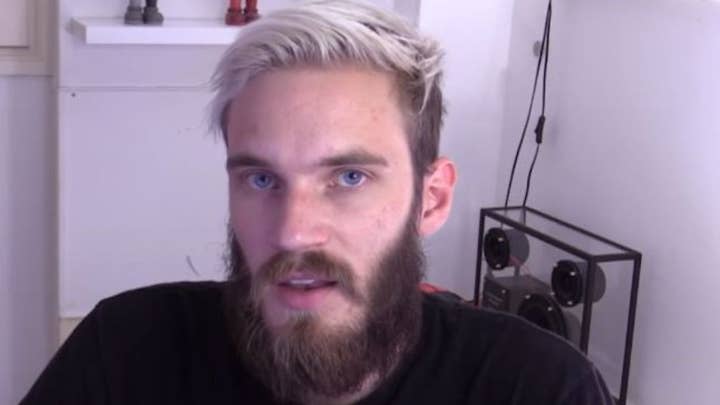Can developers control streamers?
Reed Smith partner Carolyn Pepper walks through the options available if studios wish to stop influencers covering their games
There can be little doubt of the value that influencers such as Dan TDM, PewDiePie and Mari Takihashi can have for a games developer. What developer doesn't want an audience of millions watching their game being played on YouTube?
But the dilemma faced by developers when a major influencer like PewDiePie says or does something damaging is a very real one. Should you make a stand by taking action against the influencer and potentially face criticism from the gaming community or should you let gamers make their own judgements about what has been said?
Campo Santo took the former approach when reacting to PewDiePie's recent use of the n-word in a gaming video. They decided to take DCMA action (on which more below).

Campo Santo's Steve Vanaman tweeted: "I am sick of this child getting more and more chances to make money off of what we make. I'd urge other developers and will be reaching out to folks much larger than us to cut him off from the content that has made him a millionaire."
The fact that Campo Santo's actions were prompted by statements made in a video which didn't feature its games does not prevent Campo Santo from terminating any licence that existed in relation to their own games - developers need to look at their own terms of use carefully to determine whether they have good grounds to terminate a licence.
So can you cut off an influencer from content and what are the implications of doing so?
The starting point from a legal point of view is that most developers (assuming that they have acquired all rights from producers, directors, engineers and programmers etc) will own the copyright in their games.
Copyright owners have exclusive rights including the right to reproduce, perform, distribute and communicate their works to the public (which will include playing the game on YouTube). They also have the right to grant licences to others to use their works.
When a gamer buys a video game what they are buying is not only the physical product but also a copyright licence to make use of the game subject to certain terms and conditions. As Mojang put it in their terms and conditions: "When you pay for our Game, you are buying a license to play / use our Game in accordance with this EULA - you are not buying the Game itself. The only permissions you have in connection with the Game and your installation of it are the permissions set out in this EULA."
Many developers, like Mojang and Campo Santo, make it clear on their websites or in their terms and conditions that they are happy to allow streaming and monetizing of the game (in technical terms they grant a licence to use the copyright in the game for those purposes) - this makes commercial sense given the promotional value to developers of their game being played on YouTube. However, the terms on which a developer chooses to grant a licence to stream or monetize content are up to them.
"Whichever way you look at it, if you don't like the way an influencer or vlogger is using your game or the effect that they are having on your brand, you should be able to terminate their licence"
Developers who have used lawyers to draft their terms and conditions usually make it clear that streaming or monetizing the game is only permitted provided certain terms and conditions are met. For example, the game should not be used in any way which is likely to cause offence or which is likely to damage the reputation of the game or the developer or in a way which looks as if it is an "official" use by the developer.
They will also usually make it clear that if you breach the terms of the licence to stream/monetize, the licence can be terminated. Even where it is not clear in the terms and conditions under what circumstances the licence can be terminated, the developer is likely to have the right to terminate the licence on reasonable notice.
If the developer is silent about whether streaming and monetization is allowed, but is aware of widespread use and does nothing to prevent it, there is a risk that the law would treat the influencer as having an implied licence to stream or monetize the game. But again, any licence would be terminable on notice. So whichever way you look at it, if you don't like the way an influencer or vlogger is using your game or the effect that they are having on your brand, you should be able to terminate their licence.
In cases where a developer has terminated a licence or where it did not grant one in the first place, can an influencer or vlogger continue to stream and monetize the game? That is a more difficult question, not least because copyright is a territorial right so the available exceptions will differ country to country.

In the US, there is a fair use exception in copyright law, which some argue can be relied upon to defend streaming of gaming online. However, it is right to say that this is something of a grey area and each use would have to be looked at separately to assess whether fair use applies. In the UK, there is a similar concept of 'fair dealing' but it is likely to be difficult to rely on where there has been extended unlicensed commercial streaming of game play. Influencers who stream content without a licence to do so are clearly taking more of a risk.
"Suing influencers is expensive and only worth considering to deal with persistent problematic users"
Going back to the PewDiePie scandal, Campo Santo did not just condemn PewDiePie in a tweet. It also issued a DCMA takedown request to YouTube asking YouTube to take down a video of PewDiePie playing Firewatch. It seems that YouTube has accepted the request as valid, taken down the video and issued PewDiePie with a copyright strike. Users who receive three copyright strikes will have their accounts terminated, all videos removed and will be unable to create new channels. Receiving a copyright strike is a powerful deterrent, especially for a major influencer who relies on YouTube.
Another option for developers would be the traditional route of suing the influencer for copyright infringement. But that is expensive and only worth considering to deal with persistent problematic users (unless a developer thinks the money is worth spending to send a message to others).
Although copyright infringement is likely to be the main legal remedy, it is worth remembering that there can be a role for trademark infringement as a bolster to a copyright claim where use of a developer's brand name has caused or is likely to damage the developer.
It is fair to say that the law in this area is not wholly settled (as with many legal dilemmas of this nature, developers and influences do not want to risk testing the law given the consequences of losing the case). However, there seems a reasonable chance that the law will provide a remedy to developers who object to a particular influencer or indeed all vloggers streaming or monetizing their content, especially where the developer has well drafted terms and conditions which they can rely on to control use of their game and where they have actively policed the streaming of the game on YouTube.

"Where an influencer has said or done something inappropriate, developers still have to be prepared to deal with criticism for taking a stance and should have their PR team ready before they take action"
As always, however, it is important for developers to balance the commercial risks of taking action against the benefits. It is not uncommon for developers who try to stop the streaming of their videos to face a backlash from those who argue that influencers give developers free publicity and so should be allowed to continue streaming. Some have later issued apologies for taking a strong position at the outset. Taking a firm stance is, however, less of a risk when the influencer has said or done something inappropriate and indeed it can result in good publicity for a developer - Campo Santo and Firewatch will likely have reached a far wider audience as a result of the stance that they have taken.
Developers should bear in mind, however, that where an influencer has said or done something inappropriate, they still have to be prepared to deal with criticism for taking a stance and should have their PR team ready to assist before they take action.
Whilst it may be seen overall as a positive to react to inappropriate conduct by an influencer, the opposite may well be true where a developer seeks to take action solely to protect its commercial interests and tries to prevent all streaming or monetization of its games. Developers who had tried to do this, despite the fact that they may well be entitled to do so, have been heavily criticised.
There is no definitive answer that can be given to the question of how to deal with online streaming and monetization of your games when things don't go to plan. The answer has to be "it depends". But developers should always make sure they have their terms and conditions drafted carefully so as to give them all the tools they need should they decide that they need to take a stand to prevent damage being done to their brand and have their PR advisers at the ready to support them whatever they decide to do.
Carolyn Pepper is a partner at legal firm Reed Smith. She has more than 20 years' experience working in in commercial disputes, media and intellectual property.